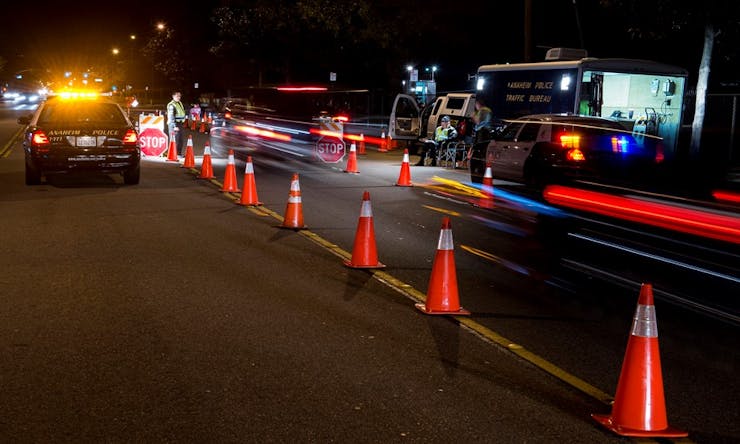Police arrest more than 1.2 million people on drug possession charges in the United States each year. For many of those individuals, what happens next is a nightmare: lost jobs, broken families, years behind bars. Even those defendants who are eventually acquitted generally sink thousands of dollars into legal fees.
In some cases, the busts are righteous. But here’s where it gets heartbreaking: According to a new investigation by public-interest journalism outfit ProPublica, many of those arrests never should have happened.
The investigation found that roadside drug tests, which police commonly use to identify unknown substances found in the field, routinely produce false positives. In other words, that fleck of laundry detergent in the backseat of your car might mistakenly be flagged as crack cocaine. (The report did not examine urine or blood tests, which measure chemical levels in a person’s bloodstream and tend to be conducted after an arrest.)
ProPublica’s muckraking dug up staggering false-positive rates from jurisdictions across the country:
In Las Vegas, authorities re-examined a sampling of cocaine field tests conducted between 2010 and 2013 and found that 33 percent of them were false positives. Data from the Florida Department of Law Enforcement lab system show that 21 percent of evidence that the police listed as methamphetamine after identifying it was not methamphetamine, and half of those false positives were not any kind of illegal drug at all. In one notable Florida episode, Hillsborough County sheriff’s deputies produced 15 false positives for methamphetamine in the first seven months of 2014. When we examined the department’s records, they showed that officers, faced with somewhat ambiguous directions on the pouches, had simply misunderstood which colors indicated a positive result.
In another example, ProPublica reviewed 300 cases of individuals arrested and wrongly convicted in Houston. Of them, 74 percent didn’t possess any drugs whatsoever at the time of their arrests.
The tests, ProPublica notes, “cost about $2 each and have changed little since 1973.” They generally consist of a bag into which a sample is placed and vials that contain reactive chemicals. They’re simple, but they’re also easy to get wrong. Some of the chemicals the tests use, for instance, react with illegal drugs but also yield positives for methadone, certain acne medications, and several common household cleaners. Other tests involve multiple steps that officers sometimes perform in the wrong order.
Even if the tests are performed correctly, interpreting the results can raise issues. As ProPublica writes, “Poor lighting on the street — flashing police lights, sun glare, street lamps — often prevents officers from making the fine distinctions that could make the difference between an arrest and a release.”
The field tests were introduced in the early ’70s, and by 1978 the Department of Justice had determined that they “should not be used for evidential purposes.” But they regularly are — and even if the results are eventually overturned after laboratory analysis, the consequences of a false positive can follow defendants their whole lives.
Of the 300 people wrongly convicted in Houston, more than half pleaded guilty within a week, sometimes at their first court hearing. For many, their plea cames at the urging of defense attorneys who based the advice at least in part on the false results. And 75 percent continue to live with convictions on their records, “some for as long as 13 years.” That can mean difficulty finding a job or housing, the loss of voting rights and other government benefits, and other restrictions. “To this day,” the authors wrote, “scores of them have yet to learn they’ve been wrongfully convicted.”
Unsurprisingly — sadly — the consequences aren’t doled out equitably. As ProPublica puts it, “The racial disparity is stark”:
Blacks made up 59 percent of those wrongfully convicted in a city where they are 24 percent of the population, reflecting a similar racial disparity in drug enforcement nationally.
The full ProPublica can be read online.






